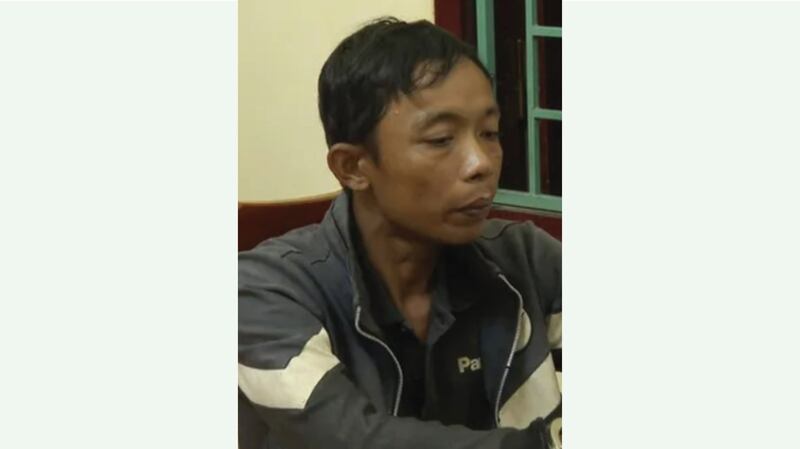Updated on March 28, 2024 at 12:45 p.m.
Vietnamese police on Tuesday arrested a Buddhist abbot and two followers – all members of the Khmer Krom indigenous group – for their alleged roles in two separate incidents involving a pagoda in the country’s south.
The nearly 1.3-million strong Khmer Krom indigenous community live in a part of Vietnam that was once southeastern Cambodia. They face discrimination in Vietnam and suspicion in Cambodia, where they are often perceived not as Cambodians but as Vietnamese.
The arrested abbot, Thach Chanh Da Ra, born in 1990, is head of the Dai Tho Pagoda, known as the Tro Nom Sek pagoda in Khmer, in Tam Binh district in Vinh Long province.
He and Kim Khiem, born in 1978, had posted allegedly slandering and insulting videos on social media and were charged with “abusing the rights to democratic freedom,” in violation of Article 331, a law that rights groups have said is vaguely written and often used to stifle dissent.
Ra was dismissed from the government-recognized Vietnam Buddhist Sangha in December.
Police also arrested Thach Ve Sanal, another member of the pagoda, on charges of “illegally arresting, holding, or detaining people,” for his alleged role in an incident that occurred when a task force entered the pagoda to investigate on Nov. 22, 2023.
The arrests took place just a week after authorities sentenced two other Khmer Krom to prison for “abusing democratic freedoms,” and about a month after a third was given three-and-a-half years on the same charge.
False accusations
The government’s accusations about the three men arrested Tuesday are fabricated, Duong Khai, a monk at the pagoda, told RFA Vietnamese.
“They distorted and slandered us, not the other way around,” he said. “They constantly come to harass us and disrupt security and public order. They disturbed our indigenous Khmer Krom community and gave us no days of peace.”
Khai said that the Vietnamese authorities arrest whoever they dislike, especially if they dare to speak up and tell the truth about the government’s wrongdoings.
“They arrested Kim Khiem because he had spoken out about their repression (of Khmer Krom,)” he said. “As for the abbot, Thach Chanh Da Ra, the authorities have repeatedly harassed (him) since the tree-cutting incident.”

More than a year ago, the Buddhist followers elected Ra to replace the former abbot of the pagoda, Thach Xuoi, because they believed Xuoi had colluded with authorities to cut down a 700-year-old tree in the pagoda that had become a community symbol.
Ra and Khiem were arrested when they were returning to the pagoda after conducting services elsewhere, the monk said.
International condemnation
The Vietnamese government is unfairly targeting Ra as a means to force the pagoda to join the officially recognized Sangha, the U.S.-based Kampuchea Krom Khmers Federation said in a press release Tuesday.
The organization called on authorities to drop all charges and release all three of the arrested people, and said the United Nations and the international community should condemn Vietnam – a member of the U.N. Human Rights Council – for its suppression of religious freedom.
RFA attempted to contact the Vietnamese Ministry of Foreign Affairs, and the Embassy of Vietnam in Cambodia for comment but received no response.
The charges against Ra are “bogus” according to Phil Robertson, deputy Asia director at New York-based Human Rights Watch.
“The Vietnamese government is deliberately harassing, discriminating against, and abusing the Khmer Krom leaders who stand up for their language, culture, and Theravadan Buddhism, and this crackdown is extending to senior Buddhist monks asserting their right to freedom of religion and belief,” Robertson said.
He said that Ra’s arrest showed that government officials have no respect for the religious beliefs of the Khmer Krom.
Robertson said that the U.S. Department of State should recognize the severity of Vietnam’s repression and designate it a country of particular concern for its violations of religious freedom.
Translated by Anna Vu and Samean Yun. Edited by Eugene Whong.
Update adds the Khmer name of the pagoda and classifies the Khmer Krom as an indigenous community.
